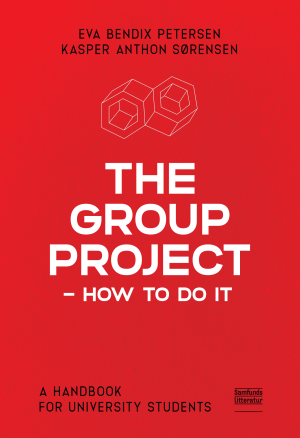Personal chemistry is often highlighted as the marker of the good project group, and students therefore often believe that it is essential to work in groups with the right people, who share their ambitions and work ethic.
In The Group Project - How to do it the authors argue and show how a focus on project work as a professional practice, where the focus is on actions rather than on personalities and good chemistry, enables productive project work in groups for all.
This is what you can read about in the book:
- Problem-oriented project work (PPL) What are the rationales behind it? What is expected of the student?
- The learning theory of group work What is the point of working in groups? What does it take to create a community of learners?
- Facilitation A vital tool for managing group meetings and work processes.
- Project management A crucial tool for planning the project and its timely submission.
- Conflicts in the collaboration What do we do? Who can help us?
- The group exam.
The Group Project - How to do it is written for university students, who work in groups on a project for shorter or longer periods. The book presents arguments for project and group work and provides specific tools that students can use from day 1. The book is also useful for students and teachers in other higher education contexts.



